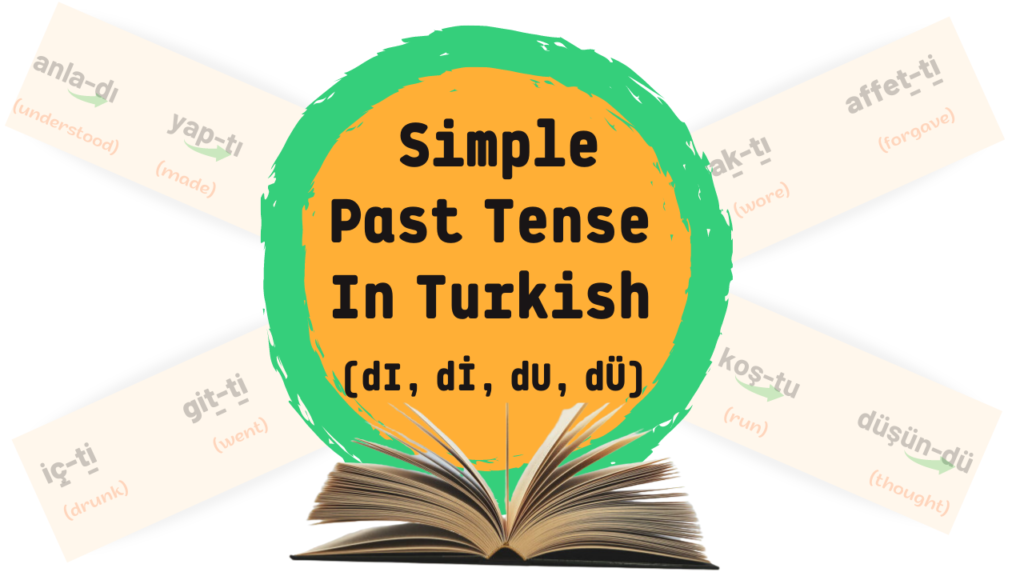In this course; “How is the simple past tense sentence in Turkish? What is the simple past tense suffixes in Turkish? What does -dı / di / du / dü / tı / ti / tu /tü mean in Turkish? What are the rules of simple past tense sentences in Turkish?” You will learn the answers to your questions.
In Turkish, the simple past tense is used when describing events that used for took place and ended in the past, but are not currently continuing. In general. There is only 8 different suffixes indicate the simple future tense. The suffixes are preferred in the sentence according to two basic subject; vowel harmony and consonant harmony. You can think of it as the equivalent of the “ed” suffix in English. In this tense we just follow two rules. Let’s see what are these rules!

1. RULE ABOUT -DI SUFFIX (according to consonant harmony)
- If the last letter of the root verb end with one of these letters: f, s, t, k, ç, ş, h, p; then the suffix will start with “t”= -tı / ti / tu / tü
- If the last letter of the root verb ends other than one of these letters: f, s, t, k, ç, ş, h, p; then the suffix will start with “d”= -dı / di / du / dü


2. RULE (according to vowel harmony)
Now you know what should be the first letter of the suffix. How about the second letter? The second letter of the suffixes are consist of different vowels so we have to check the vowel harmony!
- If the last vowel of the root verb is, “a or ı” the suffix contains “ı”= -dı / tı
- If the last vowel of the root verb is, “e or i” the suffix contains “i”= -di / ti
- If the last vowel of the root verb is, “o or u” the suffix contains “u”= -du / tu
- If the last vowel of the root verb is, “ö or ü” the suffix contains “ü”= -dü / tü

If you have any question about Turkish language just let me know in the comment below. Btw we also share all Turkish grammar lessons, some daily usefull tips, Turkish idioms and more about Turkish language and Turkish culture on YouTube channel! You can watch all lessons for free now! Just click here and subscribe to don’t lose our videos. See you in another lesson!

